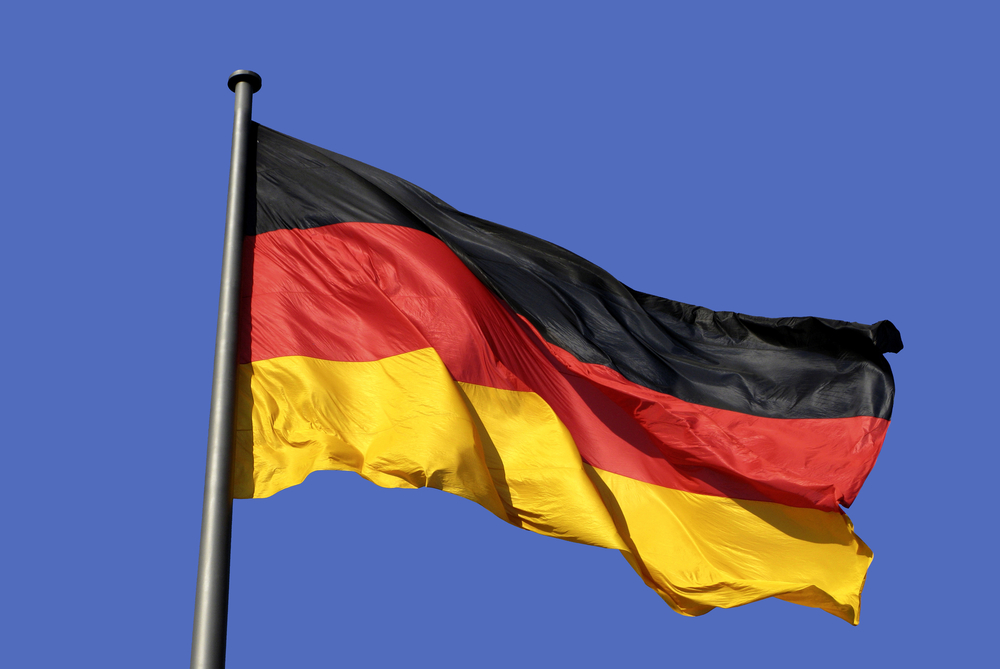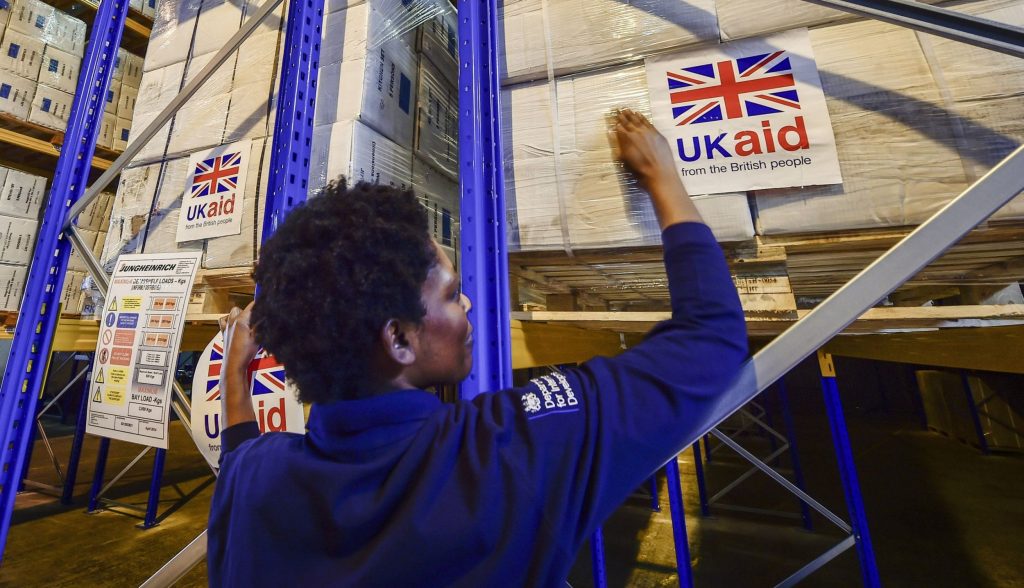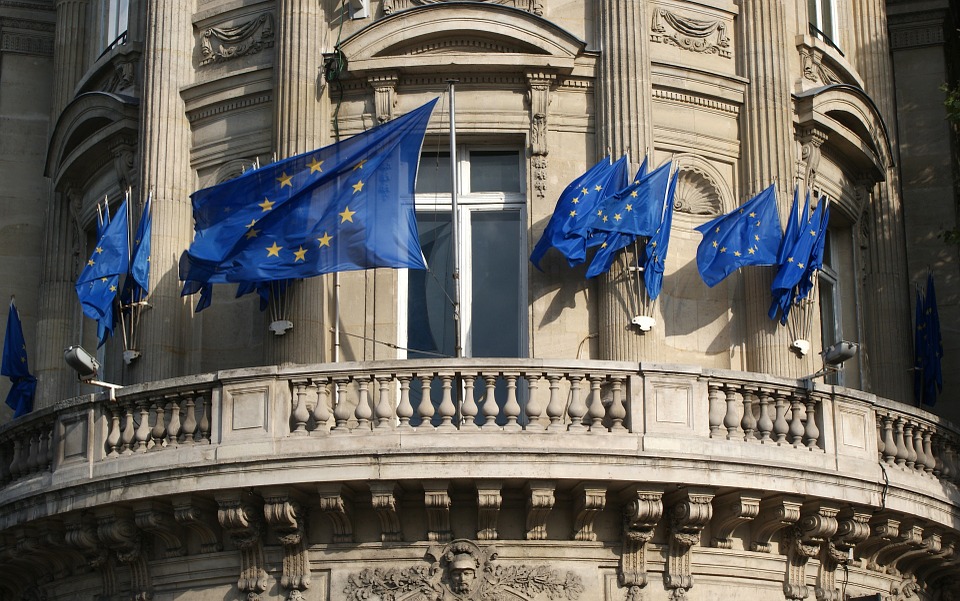In the past 2020, France proposed a new development assistance bill, Germany released a new development cooperation strategy for 2030, the United Kingdom merged the Ministry of Development and temporarily lowered the official development assistance budget target, and the European Union reached an agreement on the development cooperation budget for the next seven years. consistent.
Total words2332About6minutes
Author: Zeng Lu
France proposes new development aid bill

In 2020, France proposed the "Act on Solidarity for Development and Plans and Directions to Eliminate Global Inequality" in order to more effectively respond to global inequality and protect global public goods. The new bill proposes:
Expand the scale of foreign aid.France plans to increase the scale of official development assistance from the current 0.44% of gross national income (GNI) to 0.55% by 2022, which is an increase of US$8 billion based on 2019, with the ultimate goal of reaching 0.7%.
Improving the way foreign aid is managed.The bill proposes to build a global partnership framework, explaining how France will establish partnerships with low-income countries and international development stakeholders; and adds an aid oversight committee affiliated with the Court of Audit to strengthen the coordination and supervision of development assistance.
Continue to focus on key areas of funding.French foreign aid will continue to focus on key areas such as climate change and biodiversity, gender equality, education and global health; it will strengthen funding for 19 key countries in sub-Saharan Africa and increase investment in other developing and emerging countries.
The legislative process of the bill has been delayed due to the new crown epidemic and is expected to be passed in 2021.
France is the fifth largest donor country in the world. In 2019, French official development assistance (ODA) expenditure was US$12.2 billion.
Germany releases new development cooperation strategy for 2030

In May 2020, the German Federal Ministry for Economic Cooperation and Development (BMZ) released the 2030 reform strategy to improve the strategic nature, effectiveness and efficiency of Germany's official development assistance. The BMZ2030 reform strategy states that the main goal of Germany’s foreign aid is to combat hunger and poverty and achieve the 2030 sustainable development agenda.
The 2030 reform strategy proposes:
Foreign aid will focus on five core areas.German foreign aid will focus on five core areas: peacebuilding, food security, training and sustainable growth, climate and energy, and environment and natural resources. In addition, Germany will focus on project areas such as population development and family planning, sustainable supply chains, digital technology, and human and animal health.
BMZ divides partner countries into three categories: bilateral partners, global partners, and relationship and peace partners.Germany will work with global partners such as Brazil and China to address global challenges such as climate change; work with peace partners to reduce violence and maintain social stability in areas where conflict and refugee displacement occur; and work with other bilateral partners to achieve development goals through long-term cooperation.
The BMZ will reduce the number of governments working bilaterally, German foreign aid will divest from 25 countries, end eight bilateral country programs and reallocate most health and early childhood education funding through multilateral agencies.
Germany is the world's second-largest donor, with official development assistance expenditures of US$23.8 billion in 2019, accounting for 0.60% of GNI.
The UK merged the Department of Development and the Foreign Office and temporarily lowered its official development assistance budget target.

In June 2020, the UK announced the merger of the Department for International Development (DFID) and the Foreign Office (FCO). The newly established Department of Foreign, Commonwealth and Development (FCDO) will be responsible for the UK's international policy, external relations and development policy. The move is aimed at promoting British overseas aid to better serve foreign policy objectives. Before the merger, the UK Department for Development had the decision-making and budgetary power to independently allocate and manage foreign aid. Its professionalism and transparency were at the forefront of all British government departments, and its professionalism in the field of international development was also widely recognized. In November, the UK temporarily lowered its official development assistance budget for 2021 to 0.5% of GNI, correspondingly cutting the budget by approximately 5 billion pounds. Previously, the International Development Act 2015 stipulated that the UK’s annual development aid expenditure should be targeted at 0.7% of GNI.
The merger of the Ministry of Development and the Ministry of Foreign Affairs is expected to have a positive impact.The merger is expected to increase the administrative efficiency and development impact of both departments and improve the coherence of foreign and development policies. The Center for Existential Risk Research at the University of Cambridge believes that if the UK can adopt a clear foreign policy approach, it will help the merged Department for International Development and the Ministry of Foreign Affairs to cooperate more efficiently and closely.
This merger has been opposed by many parties because of the many problems it may cause.First, after the merger, British foreign aid spending may shift from emphasizing development goals such as poverty reduction to paying more attention to foreign policy goals such as commercial interests, which will have a negative impact on the world's poorest countries. Secondly, the merger may affect the quality of UK foreign aid. The report of the Independent Commission on Aid Impact (ICAI) believes that the professionalism and management level of the Development Department are much higher than other government departments involved in foreign aid such as the Ministry of Foreign Affairs, and the end of the Development Department will weaken the quality of British foreign aid.
The UK is a permanent member of the United Nations Security Council and one of the world's major providers of official development assistance. In absolute terms, the UK is the third largest donor in the world, with official development assistance expenditure of US$19.4 billion in 2019.
The European Commission reaches agreement on the 2021-2027 budget and finalizes the development cooperation budget for the next seven years

In December 2020, the 27 EU governments agreed on the 1.8 trillion euros "EU Multi-Year Financial Budget Framework (2021-2027)". In the next seven years, the EU will provide 79.462 billion euros in development cooperation funds through the European Neighborhood, Development and International Cooperation Instrument (NDICI).
NDICI was formed by the merger of the EU's original ten dedicated external financial funds and the European Development Fund. It will support key EU policies such as multilateralism, as well as key international commitments and goals such as the United Nations Sustainable Development Goals and the Paris Agreement.
NDICI focuses on supporting three pillars: geographical cooperation, thematic cooperation, and rapid response.
Geographic collaborations work to support key areas and key regions.Geographical cooperation with a budget of 60.4 billion euros is the main pillar of NDICI, focusing on the European Neighborhood, Sub-Saharan Africa, Asia and the Pacific, and the Americas and the Caribbean; focusing on good governance, inclusive growth, climate and environmental goals, poverty reduction, eradication areas such as inequality, conflict prevention and human development.
Thematic projects fund action on the United Nations Sustainable Development Goals at the global level.Thematic projects have a budget of 63.58 million euros and fund areas related to the Sustainable Development Goals such as civil society, stability and peace, health, education and training, women and children, social protection, culture, migration and climate change.
Rapid response supports crisis response capabilities.This part of the budget, with a budget of 31.82 million euros, is used to support rapid response and resilience capabilities in the fields of crisis management, conflict prevention, peacebuilding, etc., to combine humanitarian and development actions.
The EU Multi-Year Financial Budget Framework will come into effect after approval by EU national legislative bodies and will be applicable retroactively from January 1, 2021.
This article was first published on the WeChat public account "International Development Observation". All rights reserved, please indicate the author and source when reprinting.
References
1.https://www.diplomatie.gouv.fr/en/french-foreign-policy/development-assistance/a-new-ambition-for-french-development-policy/
2.https://donortracker.org/country/france
3.https://www.bmz.de/en/publications/type_of_publication/information_flyer/information_brochures/Materilie520_reform_strategy.pdf
4.https://publications.parliament.uk/pa/cm5801/cmselect/cmintdev/596/59602.htm
5.https://www.consilium.europa.eu/en/press/press-releases/2020/12/18/neighbourhood-development-and-international-cooperation-instrument-coreper-endorses-provisional-agreement-with-the-european-parliament/
Past review
- Recapping International Development in 2020
- New Technologies Empower the UN Sustainable Development Goals
- Joining the Global COVID-19 Vaccine Initiative: A Win-Win for China and the World
- WFP's Nobel Peace Prize: A Compelling Justification

